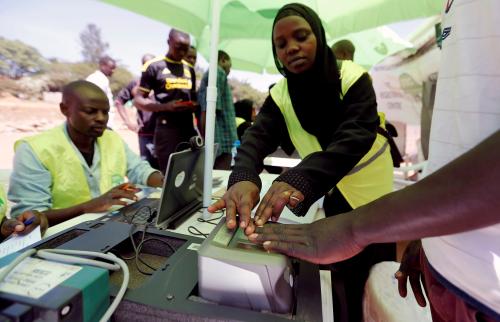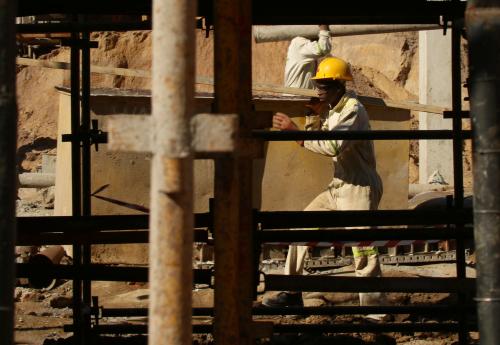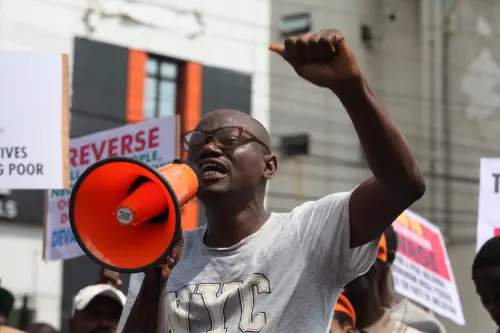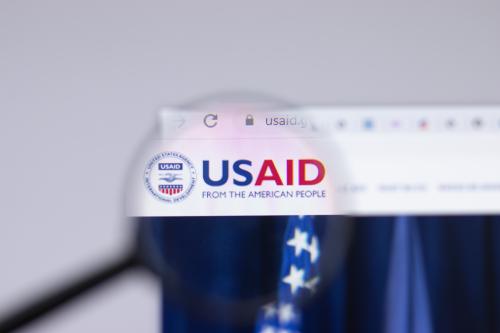Kenya’s Supreme Court nullifies August 8 election
On Friday, September 1, in a surprising 4-2 decision, Kenya’s Supreme Court declared the results of the August 8 presidential election null and void and ordered a new election within 60 days. Opposition candidate Raila Odinga had filed a challenge to the election with the court earlier this month, citing voting irregularities and claiming the electronic voting results were hacked. The court agreed, with Chief Justice David Maraga stating, “The presidential election was not conducted in accordance with the constitution.” Notably, the court found that fault for the irregularities fell on the Independent Electoral and Boundaries Commission and not President Uhuru Kenyatta or his coalition. Kenyatta has announced that he will respect the court’s decision.
Agreement reached at African-European migration summit
African and European leaders—representing Chad, France, Germany, Italy, Libya, Niger, and Spain—met in Paris this week to discuss plans to stem the flows of refugees and migrants arriving in Europe via North Africa and the Mediterranean Sea. According to the International Organization for Migration, approximately 120,000 migrants, including refugees, have so far entered Europe by sea in 2017, less than half the number of arrivals in 2016. Meanwhile, more than 2,400 people have drowned attempting to make the dangerous journey this year. During the meeting, Chadian President Idriss Deby stressed, “We are all committed to reducing the damage, the death of Africans in the desert, the death of Africans crossing the Mediterranean,” and that “the fundamental problem will always remain development. We need resources.”
The leaders ultimately agreed to several proposals, including commitments by European leaders to assist Chad and Niger with border controls, provide support to combat human trafficking, and accept asylum claims from refugees who apply for protection while in Africa rather than in their destination countries. The European partners stated that they would send a joint mission to Chad and Niger soon to determine how best to operationalize these proposals. French President Emmanuel Macron, the host of the summit, told reporters, “We must all act together—from the source countries to Europe and the transit countries, especially Libya—to be efficient… It’s a challenge as much for the EU as for the African Union.”
Staff shakeup at the Nigerian National Petroleum Corporation while hydroelectric power plant contract is awarded to Chinese state firm
The Nigerian National Petroleum Corporation (NNPC) announced a significant management staff reshuffle on Tuesday as part of its ongoing restructuring efforts. 55 officials were either newly appointed or reassigned within the company’s various divisions. The spokesperson for the NNPC confirmed that all of the new appointments have been approved by President Muhammadu Buhari who this week returned to Nigeria from medical leave after five months in London. The NNPC is hoping to open new international offices in major oil trading hubs to facilitate more international Nigerian crude supply contracts.
In related oil news, Nigeria has seized $21 million linked to former Oil Minister Diezani Alison-Madueke, who is facing corruption charges. According to al-Jazeera, this development also follows a recent seizure by Nigeria’s Economic and Financial Crimes Commission of some of her property worth $44 million allegedly bought using corruption proceeds.
Also this week, Nigeria approved construction of the 3,050 megawatt Mambilla hydroelectric plant, awarding the contract to the China Civil Engineering Construction Corporation, a Chinese state firm. China’s Export-Import Bank will provide 85 percent of the funding with the Nigerian government covering the remaining 15 percent. The project is expected to cost $5.8 billion and aims to be completed in six years. The project will include four dams built along the Donga River in Eastern Nigeria.
Tough law banning plastic bags in Kenya comes into force
On Monday, a Kenyan law banning the use of plastic bags came into force after a final legal challenge by two plastic bag importers, which was rejected by the country’s high court last week. Given that Kenya is a major exporter of plastic bags to the East African Community, opponents to the law claim that consequences could include the loss of 60,000 jobs.
The ban, which was attempted in 2007 and 2011, was officially passed in February of this year, but implementation has been delayed to allow for companies and citizens to adjust to the law. Offenders face fines up to $38,000 or up to four years in prison. While ordinary people are susceptible to fines, the Kenyan government has emphasized that the true targets of enforcement are manufacturers and suppliers. According to the BBC, right now officers will only confiscate bags from ordinary people, not arrest them. While Kenya is not the only country to ban plastic bags, its penalties are the harshest. Countries like China, Italy, France, and some U.S. states partially ban or tax plastic bags. Rwanda banned these bags in 2008 and searches visitors before they officially enter the country.
In supporting the ban, officials have emphasized the scourge that plastic bags have taken on the Kenyan environment. Kenya uses about 24 million bags a month, which take anywhere between 20 and 1,000 years to biodegrade. Bags have been found in the stomachs of livestock, and a U.N. Environment Program marine litter expert has stated that if current trends continue, there could be more plastic than fish in Kenya by 2050.
The Brookings Institution is committed to quality, independence, and impact.
We are supported by a diverse array of funders. In line with our values and policies, each Brookings publication represents the sole views of its author(s).







Commentary
Africa in the news: Kenya election annulled, EU-Africa migration summit, and Nigerian oil leadership shakeup
September 1, 2017